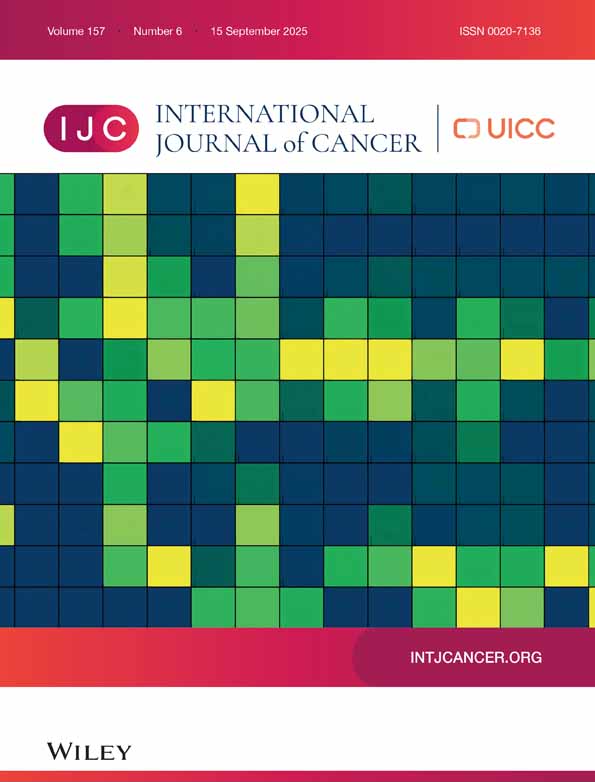Colon-cancer cell variants producing regressive tumors in syngeneic rats, unlike variants yielding progressive tumors, attach to interstitial collagens through integrin α2β1
Abstract
Nine clones of tumor cells, derived from a single rat colon carcinoma, were analyzed for their adhesive properties and in vivo growth patterns. Four clones (denoted REG) gave rise to regressively growing tumors. Cells from the 4 REG clones attached significantly better to collagen types I and III than did cells from the 5 clones (denoted PRO) which grew progressively in vivo. In contrast, REG and PRO clones did not differ in their attachment to collagen type IV, laminin or fibronectin. The attachment of REG cells to collagen was dependent on Mg2+, but not Ca2+. Monospecific rabbit IgG to rat integrin β1-chain inhibited REG cell attachment to collagen, demonstrating involvement of a β1 integrin in this process. PRO and REG cells expressed an underglycosylated β1 chain (Mr ∼ 105,000) that was somewhat smaller than β1-chains described previously on rat fibroblasts and hepatocytes (Mr ∼ 115,000). Monoclonal IgG to rat integrin α2β1, but not to α1β1, readily inhibited REG cell attachment to collagen, demonstrating the involvement of integrin α2β1. However, β1 and α2 integrin subunits were found in purified glycoproteins from both PRO and REG cells. This suggests that α2β1 integrin is expressed by both cell variants, but is functional as a collagen receptor on REG cells only. In this system of tumor-cell variants, the clear-cut differences in attachment to interstitial collagens of the 9 clones suggest a possible relationship between this attachment and the capacity to induce progressive or regressive tumors. © 1996 Wiley-Liss, Inc.




